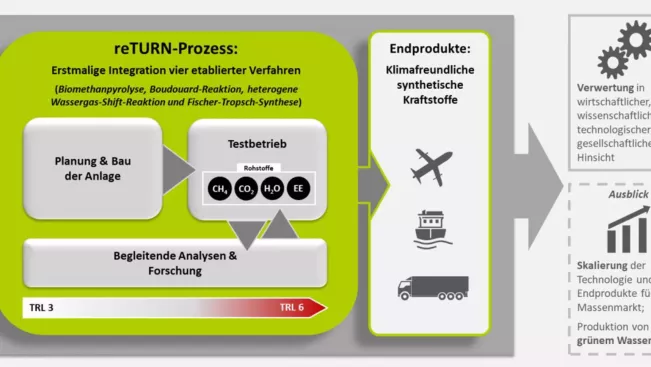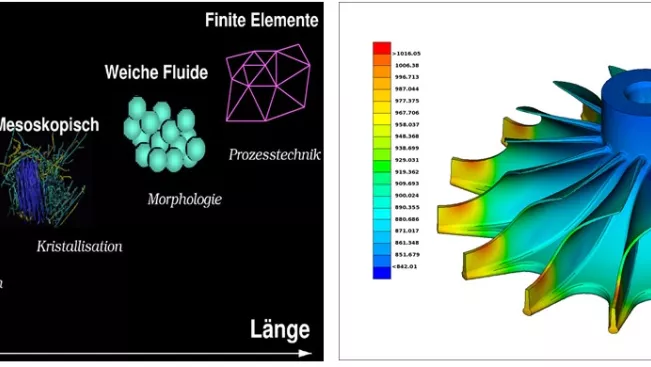Institute of Technology, Resource and Energy-efficient Engineering (TREE)
Mobility-Lab
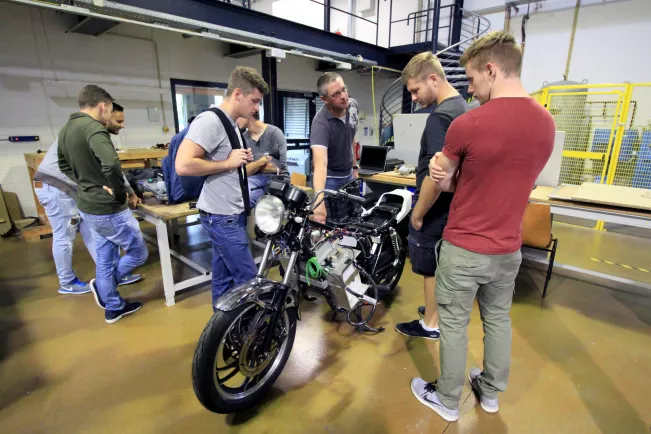
Electric Drive Systems
Electric drive systems are the technical cornerstone of electromobile vehicles. The utilization of electrical energy is a focal point in the research activities at H-BRS. The research focus is on the electric drive train as a complex multiphysical system with regards to autonomous driving, lifespan, efficiency, and resource conservation. Additionally, the components (drive inverter and machine) are designed and demonstrated using the latest technologies and concepts.
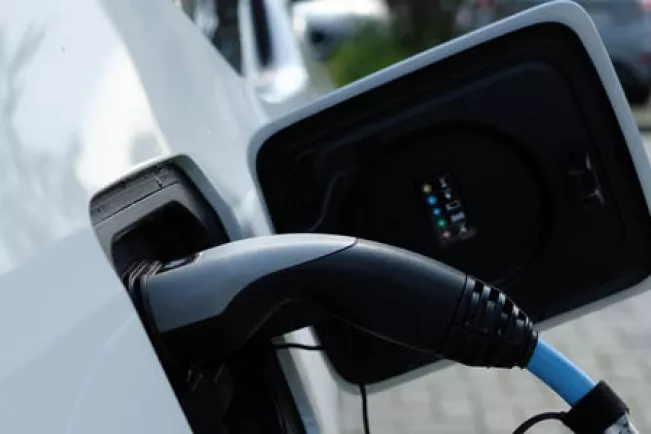
Charging Technology
A research focus of TREE is in the field of power electronics (grid integration, storage, electrolysis). In the research field of Bidirectional Charging Management, technological solutions are explored to make electromobility even more environmentally friendly, cost-effective, and convenient. The goal is to interconnect power grids, charging infrastructure, and vehicles with bidirectional charging technology in a way that electric vehicles become part of the energy storage system. In addition to the focus on electric vehicles, TREE also conducts research in the area of maritime e-mobility.

Hydrogen Mobility
In the field of hydrogen logistics, there is research expertise in transport routes and networks, as well as scenarios for the conversion, addition, and discontinuation of new transport options in the hydrogen and hydrogen derivatives sector. The use of hydrogen provided in a pressureless manner through metal hydride storage can also be a solution for selected applications (e.g., forklifts, bulk storage at fuel stations). H-BRS is a member of the hydrogen networks HyCologne and H2R Hydrogen Rheinland.
„Eletric drives play a key role in the energy transition, especially in sustainable mobility, where they form the heart of the vehicle. Without them, no wheel turns. A well-established technology has become a paradigm shift in the world of mobility. Let's move towards the future with optimal electric drives for autonomous driving!”
Prof. Dr. Anna-Lena Menn - Professor of Engineering Mathematics, especially Optimization of Technical Systems / Photo: @PhilDera
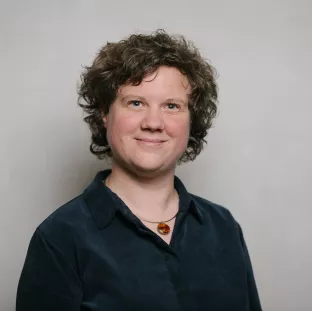
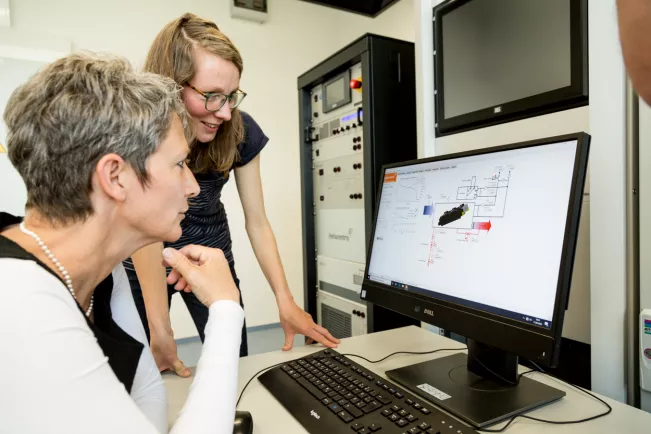
Modeling and Simulation
Because the efficiency of vehicles is not solely determined by the propulsion system, the research field of Efficient Mobility focuses on optimizing the efficiency of the shape, design, materials, and operational strategies of vehicles. This includes aerodynamics, mathematical-physical modeling and simulation, the development of new methods for flow measurement, and research on more sustainable vehicle components.
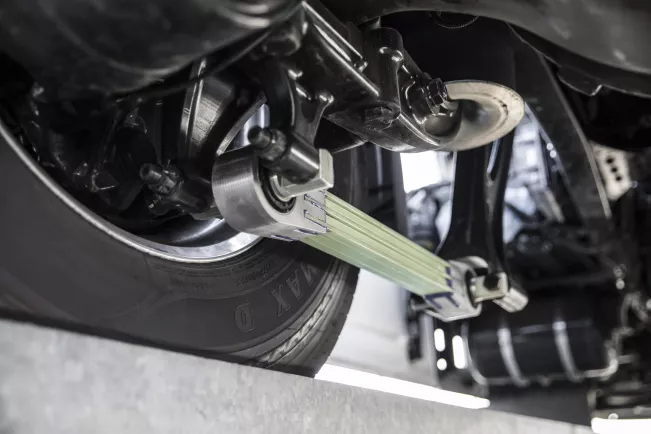
Complementary Research Fields
The mobility research at H-BRS is complemented by the additional research fields of life cycle assessment and sustainability analysis (including vehicle components, fuels, transport routes, alternative mobility practices). The focus is on questions related to the climate impact of hydrogen and synthetic fuels, both in ground-based and air transportation. In addition to ecological aspects, economic and social factors are also considered, including societal acceptance research (such as transportation routes, mobility practices, materials, and propulsion).
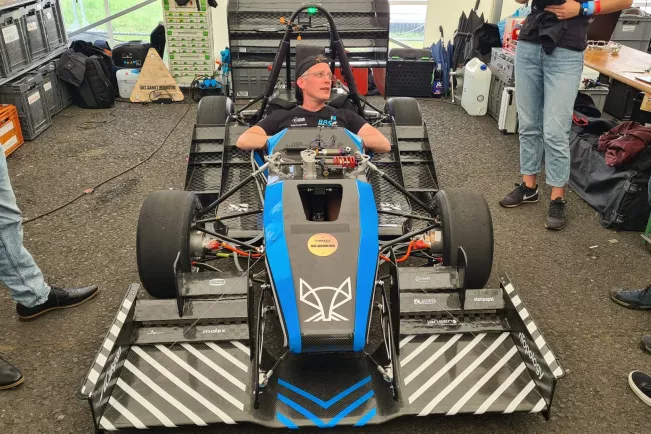
BRS Motorsport
In the Formula Student team at the Hochschule Bonn-Rhein-Sieg, over 60 students from various departments expand their knowledge from their studies and design and manufacture an electric race car every year. The teams compete against each other at international competitions, and they are evaluated not only based on the performance of the prototype but also through theoretical disciplines. These disciplines include the construction of the race car, a cost and manufacturing analysis, as well as the development of a business model.
Thematic Focus Areas Overview
- Alternative and efficient mobility concepts
- Drive technology development: power electronics, machine, and control
- Model-Based Systems Engineering (MBSE)
- Component characterization and aging studies
- Technology acceptance
- Optimal energy efficiency of vehicles
- Weight- and cost-optimized use of materials
- Bidirectional charging (conductive and inductive) and charging management
- Power-to-X
- Life Cycle Assessment (LCA) and sustainability analysis, especially in the field of E-Fuels
- Power-Hardware-in-the-Loop and "Digital Twins"
- Energy cycles and sector coupling
- Big Data & Mobility 4.0
- Control methods for system services of electric vehicles
- Technology impact assessment, especially sustainability of autonomous vehicles

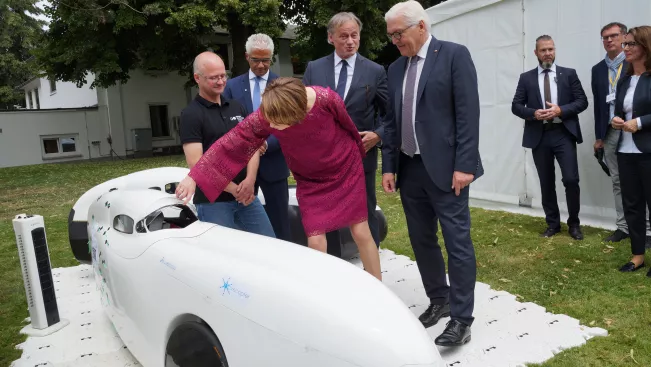

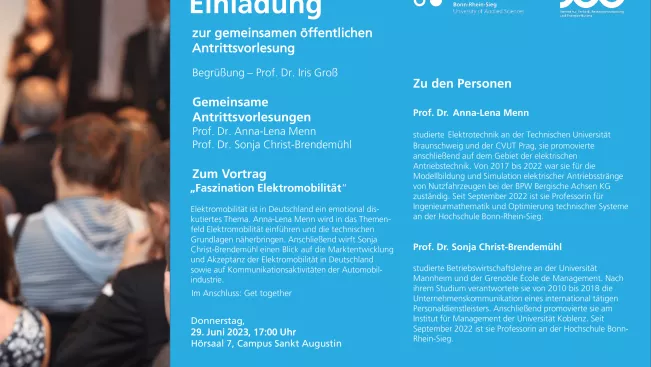

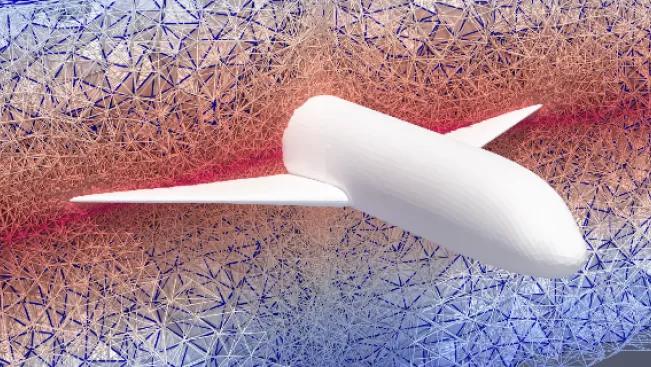
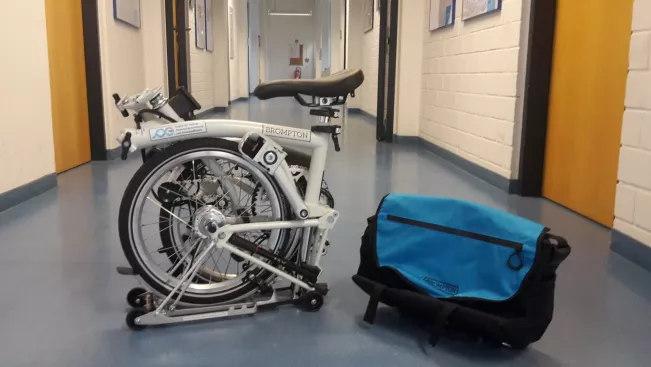
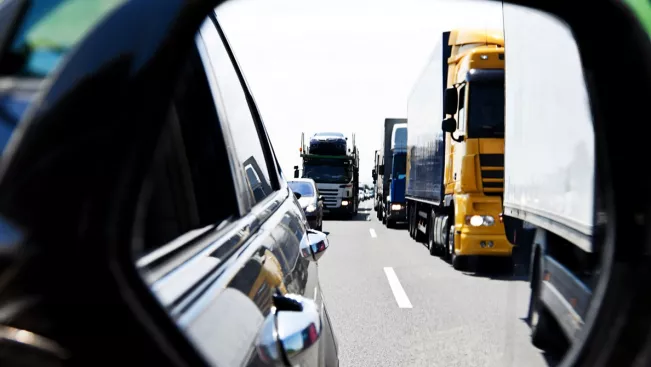
Research and cooperation
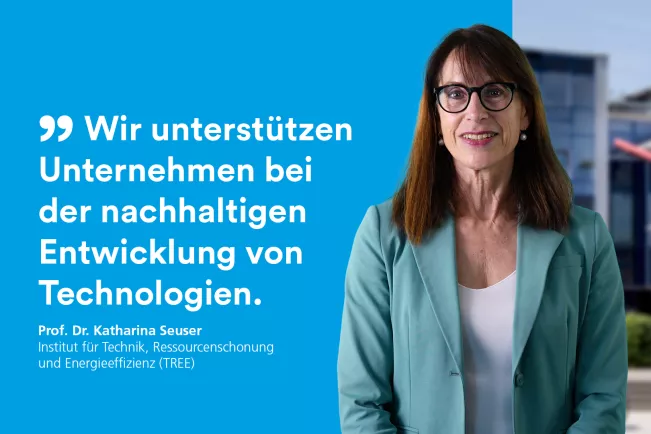
In many corporate strategies, collaboration with research institutions has long been established as a crucial element of Open Innovation. Whether it's specific research ideas or assistance with entrepreneurial challenges, the university serves as a scientific partner, providing expertise.
If you are interested in collaboration, please feel free to get in touch.
